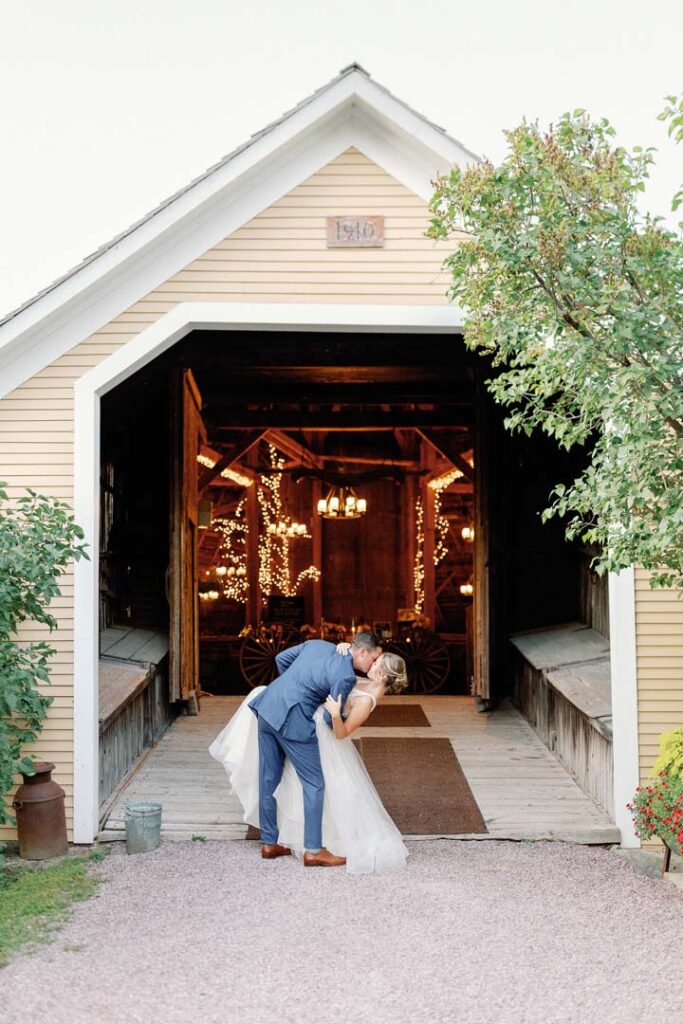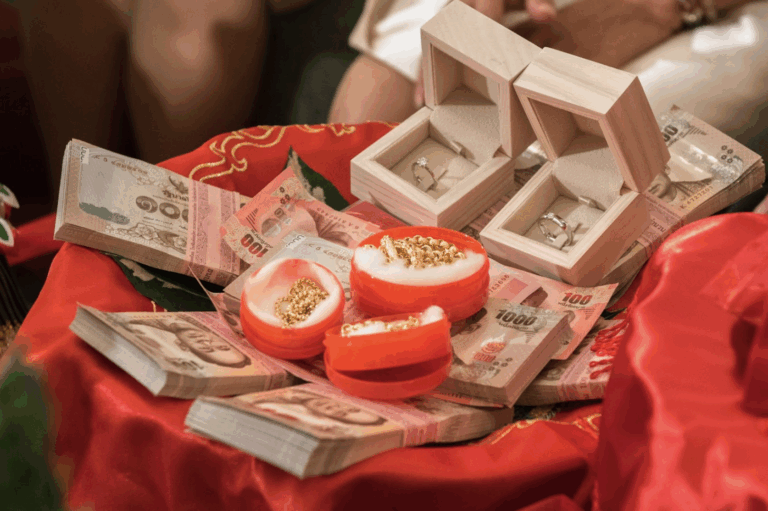They sound similar and, in many ways, they are.
But a wedding shower vs bridal shower are two separate and distinct events that are put on for different purposes.
Some people will have only one, while others will do both or neither.
Personally, we think you should do both, but that’s just a matter of opinion, based on the fact that they’re fun and you don’t need to spend a lot of money on either one.
Whatever your own preference happens to be, it’s good to know the differences between each of these two types of celebration so you can make the best informed choice for you and plan accordingly.
\And if you’re planning to host either a wedding shower, bridal shower, or the wedding itself in Vermont, be sure to check out this helpful list of venues we made! 🙂
*Disclaimer: Up ahead are historical explanations of traditional practices and customs from different parts of the world. We have made our best effort to be respectful of all relevant cultures while keeping things as light and good-humored as we can, but it’s impossible to describe certain things from the past in a way that offends no one. Any offense is unintentional.
Historical Origins
The idea of a bridal shower is most commonly believed to have originated in Holland around the 16th century as a way to get around the more traditional dowry system that had been commonplace in Europe up until the Dutch started to get interested in more modern notions of egalitarianism. In this original form, it was a pretty simple concept.
Essentially, friends and other people the couple knew would give them flowers and other small gifts, like utensils and other household items, to help them get started in their new life together.
Since these were Dutch people, we assume that the flowers were very pretty, but the most important thing was that this meant that neither of the two new spouses nor their families had to break the bank on an expensive dowry.
The exact origin of a wedding shower vs bridal shower is a bit harder to pin down, but it’s safe to assume that wedding showers are a more recent thing.
This is because both involve friends and family giving gifts, but unlike a bridal shower, a wedding shower also includes the groom and his side of the family.
It’s reasonable to speculate that this development may have been influenced in some part by the changing of social norms (women study and work like men now) and the mixing of cultures that have occurred in Western countries since the 16th century.
While it may have been the norm in the West for the bride’s family to pay the dowry, the Indian subcontinent and certain parts of Africa are really the only other parts of the world where that was the case.

Discover more in your free brochure
"*" indicates required fields
Why would a woman’s family have to pay a dowry to give her away?
In cultures where the bride’s family pays the dowry, it is because the bride went from being under the guardianship of her father to that of her husband.
And when we say “guardianship,” we mean that the man in her life (father or husband) was held not only socially but also legally responsible for her material well-being, any material damages she caused to others, and any debts she had.
In addition ot being a way of compensating the bride’s family for the loss of her labor, a dowry was essentially a way for the bride’s family, mainly her father, to entice her husband and his family into taking her on as their legal responsibility.
The original meaning of this custom is that the father would very literally give his daughter to her husband (legally), at which point she would take her husband’s last name and become his problem (again, legally).
Why would a man have to pay if he’s already taking care of her?
Well, in a nutshell, it’s a reflection of different social priorities, different historical legal systems, and different cultural understandings of what exactly the value and purpose of a spouse were.
While in Western societies, the dynamic was basically what we just described, it was different in other societies where the primary purpose of a wife was to be either a mother or a bargaining chip, like in Game of Thrones.
And this was especially pronounced in societies with a higher number of young males than young females (supply vs. demand).
By paying a dowry, a man (really, his family since young men don’t usually have money), were demonstrating to a bride’s family not only that they were capable of providing for her material wellbeing but also that they were wealthy enough to be able to afford an often obnoxiously high dowry price.
At the same time, as it still is in many places like Thailand, the bride’s family traditionally also likes to show their own friends and relatives how much money and/or assets they were able to get in exchange for the bride (i.e.: how much their family is worth) and how much the groom and his family respect them and appreciate the good job they did raising the her.
This all makes me feel uncomfortable…
Yep.
And lots of other people feel that way, too.
That’s why these particular traditions are not very common in the West anymore these days.
One way or another, for most of human history and in most human cultures, the expected norm was for someone to exchange money or material gifts in return for a spouse.
Given how Western societies have changed since then, it’s not hard to understand why many people, especially couples from different cultural or ethnic backgrounds with opposing traditions, found these old systems distasteful and started choosing to either move away from them entirely or harmonize them by having both the bride and the groom receive gifts.
To put it simply, the relatively new tradition of having friends and family give gifts of money and household items to the newly married couple arose largely as a way to avoid either side needing to pay a dowry to the other to get married and start their new life together.
But how does this all apply to me?
Every custom or tradition in the world has a historical reason behind it.
And while it’s certainly fun to learn about all that stuff, it’s also very useful.
Now that you understand the origin and reasons behind a wedding shower vs bridal shower, you can make a more educated decision regarding which one you want to do and why.
Just as with your wedding, that ‘why’ part is the most important part of the whole thing.
Just like your wedding, a wedding shower or bridal shower is a significant life event full of symbolism and tradition, all of which comes from somewhere and means something.
We encourage you to do at least one of them (or both!) because they’re just a lot of fun, and both of them are ultimately relatively new traditions that came into existence admirably as a way to break away from older ones that were causing problems and putting unnecessary strain on relationships.
It also never hurts to get a bunch of free stuff to help start your married life together.
Goodness knows we could all use some of that.
However, we also encourage you to look deeply into why you’re choosing the traditions you are and why you’re involving the people you’re involving in the way that you are, so that the whole experience is that much more deeply meaningful for both of you. 🙂



